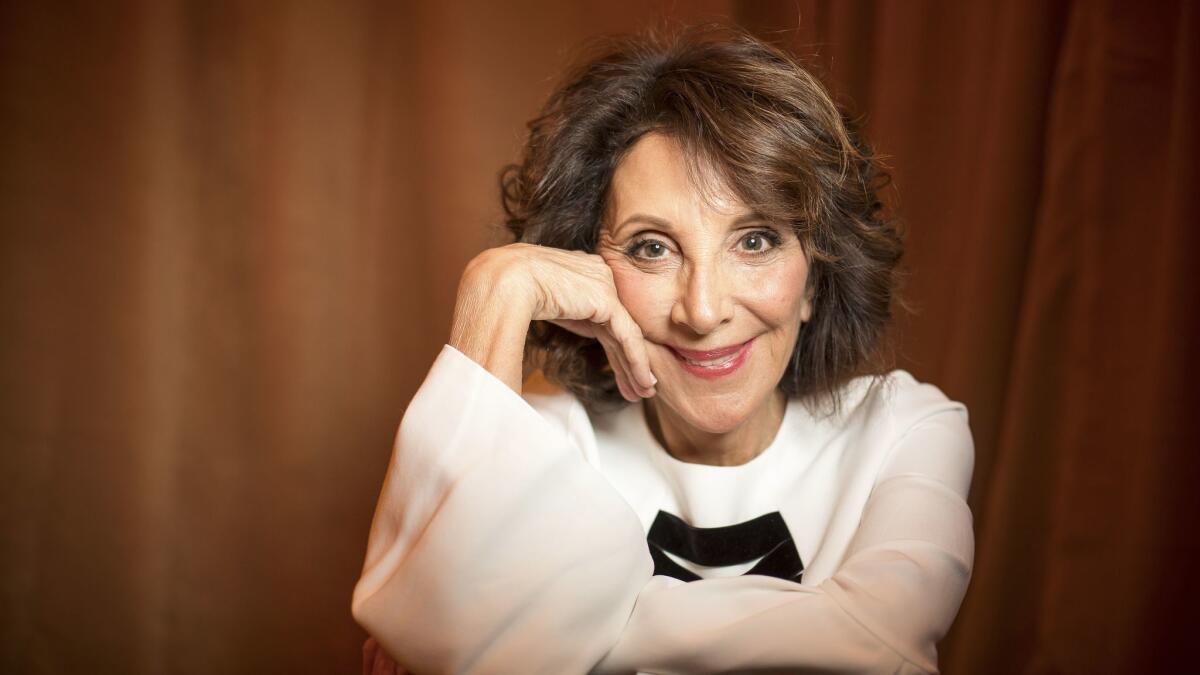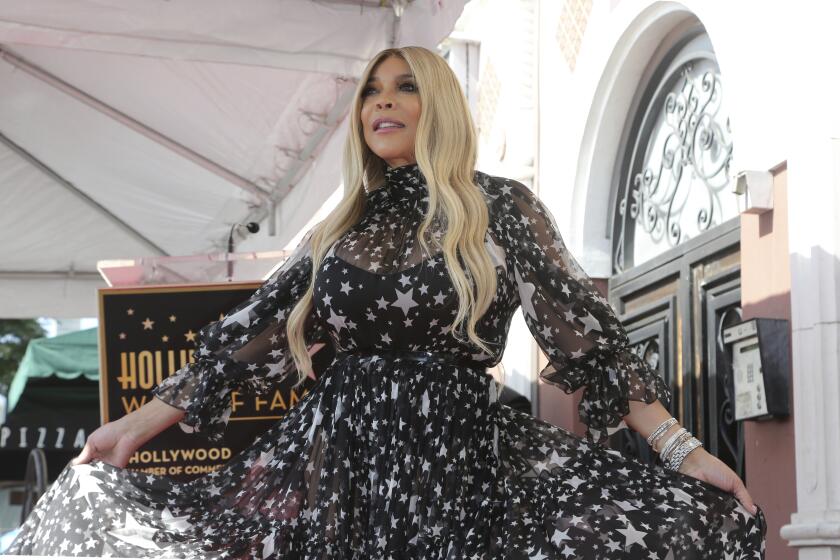‘Great News’ star Andrea Martin is having a major career moment

More than four decades into a prolific career in film, TV and theater,
Currently in production on the third season of the caustic
For someone who won a Tony four years ago for fearlessly flying on a trapeze in “Pippin,” off-stage Martin is endearingly self-effacing and excitable. Over eggs and coffee at a cafe on the Upper West Side, where she’s rented the same apartment since the early 1970s, Martin discussed her love of the circus, her Armenian roots and the possibility of an “SCTV” reunion.
What’s exciting for you about playing Carol?
What a great role model Carol is! Working for the first time at 60 — good God. You have to really be uniquely open to life. It’s inspiring, I think. Carol has no filter and she’s certainly not politically correct. There’s something very refreshing about being like that. She just is such an open book and so enthusiastic. It forces me to be in the moment. There’s no second-guessing with her. I’m really acting when I play it. There’s a lot second-guessing that goes on in this head.
Are you a hands-on parent?
I understand what it’s like to want to hang out with your kids more than any other people you know. Fortunately for my kids they live in L.A. I have two sons, 33 and 35. My oldest son has a child and I have done everything within the willpower that I have as a human being not to say anything about the way they’re raising their child. And by the way, I don’t need to. They’re doing an amazing job. But the instinct as a mom is to say something.
Speaking of professional challenges, you learned the trapeze for “Pippin” despite a fear of heights. What was that like?
During the shooting of “Club Paradise” with
The only time I allowed myself fear was every night we’d rehearse before the show. I was just me as myself, and it was harder to hold on to the fantasy."
— Andrea Martin
You also studied mime when you were younger. What led you to do that?
I studied at the Sorbonne in college and I loved it so much I went back to study mime with Jacques Lecoq. I would never joke about mimes, but I guess they’ve gotten bad press. I hate everybody now! People should go back and look at Emmett Kelly, Jean-Louis Barrault, Buster Keaton. Hello, Charlie Chaplin? Mime is like physical comedy. There aren’t many people who can do it well.
It’s interesting you say Carol is inspiring. I think a lot of people would say the same of your career. What are some of your influences?
Two books have been kind of transformative for me. “Younger Next Year,” which is all about how there is no reason medically, psychologically why you can’t stay healthy and fit if you work out six days a week, which I do anyway. And “When Breath Becomes Air,” which is the most beautiful, life-affirming and yet sobering look at mortality. It’s really changed my outlook on life. Why spend the next 20, 30 years worrying? First of all it doesn’t do anything, but you’re addicted to it if that’s all you've done all your life. [Laughs.] I’m going to come across as Marianne Williamson.
Do you watch much TV?
I’m a news junkie. I watch a lot of CNN. I shouldn’t because I get depressed. Honestly, every bit of television pales compared to reality. It has become a form of entertainment for me. I also watch a lot of reality on TLC. “Intervention” I love.
What about “Hoarders”?
I could literally talk about every episode. I watch “My 600-lb Life.” Look, the reason I watch [these shows] is at the end you believe there’s going to be some redemption. I don’t know if it’s voyeurism. I don’t know if it’s just that part of me that wants people to succeed or the immigrant mentality. When you grow up Armenian in Portland, Maine, you always feel a little like the underdog. I’m rooting for people to succeed.
Was that mentality a large part of your identity growing up?
There was a strong sense of having the expectation from my parents to succeed, and with that generation, the necessity to assimilate. What that does it detaches you from your own culture. It’s a kind of schizophrenic upbringing.
Did you have to discover your cultural heritage later on?
I discovered it in 1992 when I was writing a one-person show called “Nude Nude Totally Nude.” Halfway through writing it I realized I knew nothing about my roots. What the heck is going on here? I better get to Armenia and figure it out. I didn’t understand the history. I didn’t understand the innate sense of sadness that my grandmother, who lived with us, had. I didn’t understand the solitude that she needed. So it was eye-opening. I do a lot of work with Armenian organizations. It’s really given me a larger sense of purpose.
You wrote a memoir, “Lady Parts,” a few years ago. What was the process like for you?
I feel accomplished and proud to have written it. But it was hard. I’m not good on my own. I like to toss around ideas. That’s why improv was so great for me. I like exploring. I’m just the old school, summer stock mentality. I wrote it in the solitude of my own head. I could access the non-needing-applause part of me and the real authentic part of me. I gave the book to Nathan Lane, who’s a really close friend of mine who’s a voracious reader. He gave me an honest appraisal of the book. So then I just kind of let it go until I got on Amazon and read the reviews. That was lethal. That was bad.
Do you see the influence of “SCTV” on today’s comedy?
The thing about “SCTV” is we did it in a vacuum, so we weren’t aware that it had any impact until many years afterwards. Tina [Fey] and Amy [Poehler, executive producer of “Difficult People”] — they worked at Second City. That generation of brilliant comedians, there are so many fans —
See the most-read stories in Entertainment this hour »
Follow me @MeredithBlake
The complete guide to home viewing
Get Screen Gab for everything about the TV shows and streaming movies everyone’s talking about.
You may occasionally receive promotional content from the Los Angeles Times.



